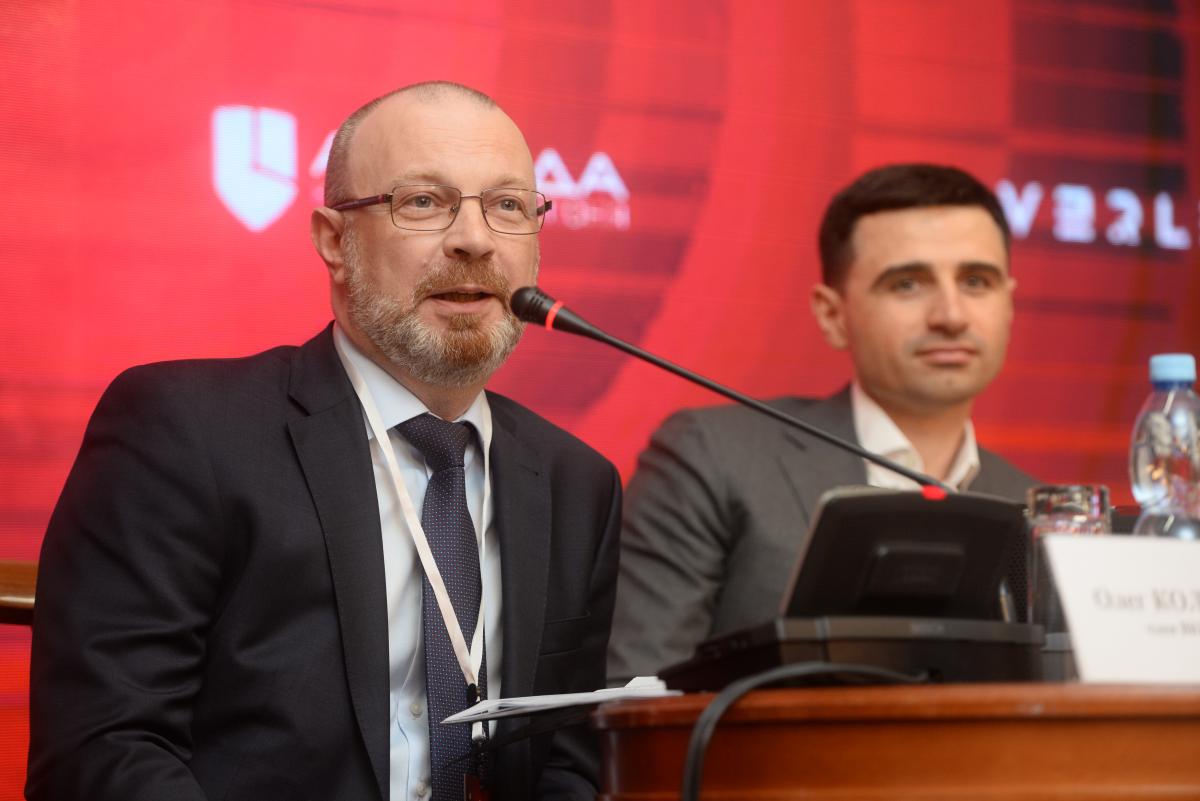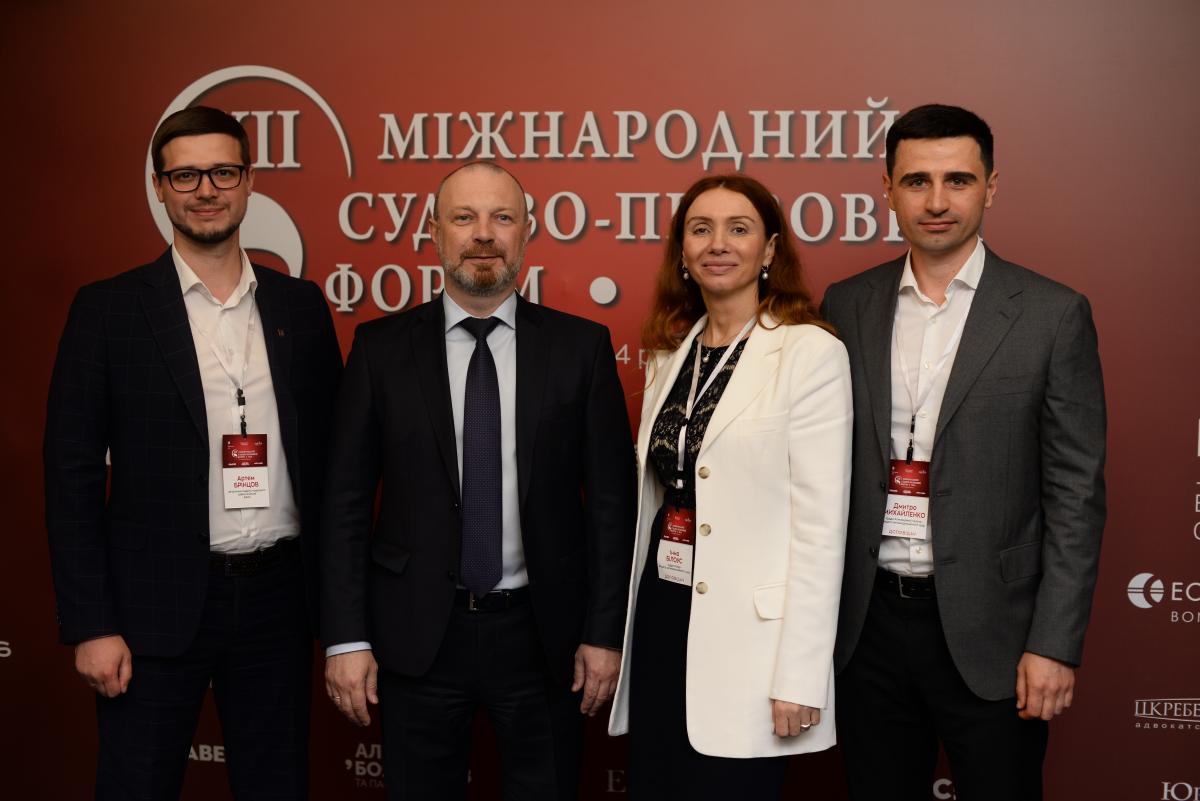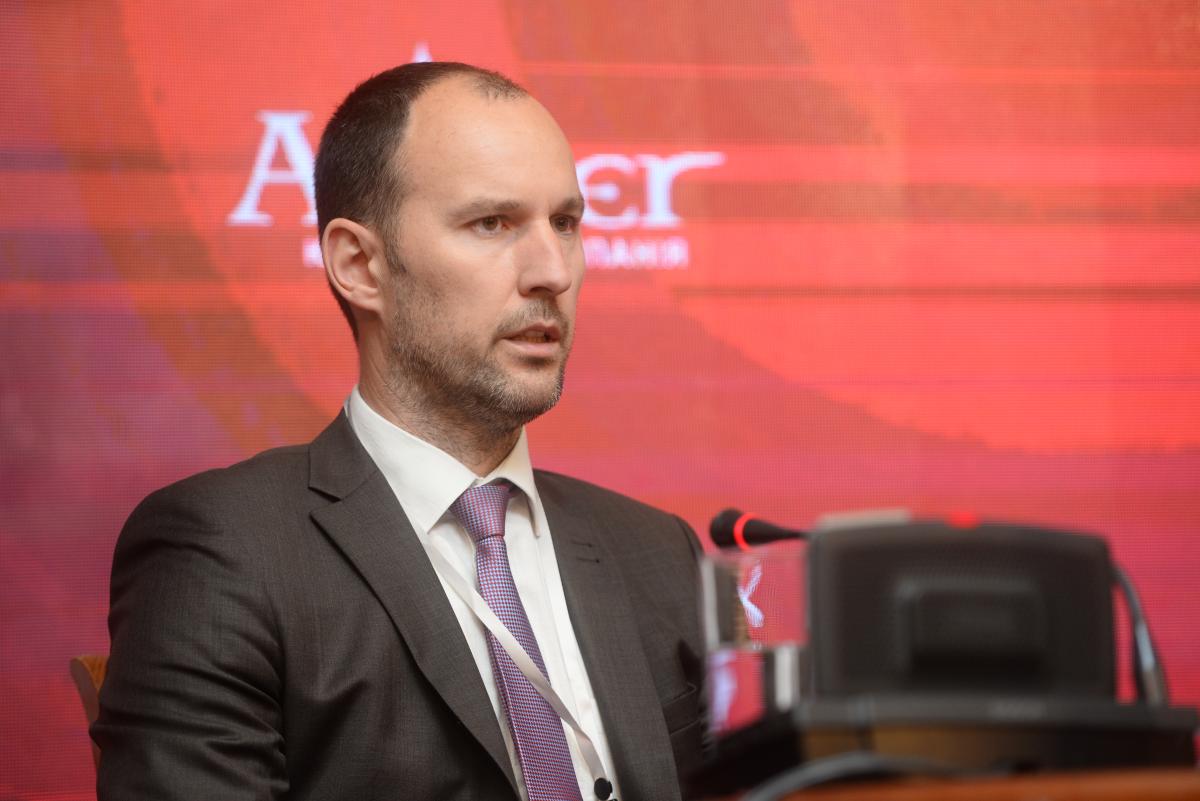
On June 13-14, 2024, members of the High Qualification Commission of Judges of Ukraine Oleh Koliush and Mykhailo Bohonis took part in the XII International Judicial and Legal Forum organized by the Yurydychna Praktyka Publishing House.
Opening the session “Prevention of Corruption” on the first day of the event, Oleh Koliush delivered a report on the peculiarities of applying the in absentia procedure in anti-corruption cases. He noted that as a judge of the High Anti-Corruption Court, he was involved in this topic and had several such cases under consideration. However, this topic remains in his field of vision while acting as a member of the High Qualification Commission of Judges of Ukraine.
“Recently, paragraph 20 of Section 12 of the Law of Ukraine “On the Judiciary and the Status of Judges” was amended to regulate the consideration of the issue of a judge’s suitability for the position in case of his/her systematic absence from any of the stages of the evaluation. In such a case, the Commission may consider the issue of the judge’s suitability in his or her absence. That is, it is almost the same as in absentia”, – noted Oleh Koliush.
The Commission member reminded that the amendments to this law also regulated the issue of applying to the High Council of Justice with a motion to dismiss a judge from his or her position in case of refusal to pass the evaluation. The law defines what constitutes a refusal, and in this case, the issue is considered by the plenary composition of the HQCJ in the absence of the judge.
Oleh Koliush also spoke about the peculiarities of in absentia as a special procedure of criminal proceedings (pre-trial investigation and trial) in the absence of the accused.
The next day, the session “Integrity and Professional Ethics” was attended by Commission member Mykhailo Bohonis, who presented his report “Integrity – evolution of content and basic rules of evaluation in the practice of the HQCJ”. He noted that the concepts of ethics and integrity are becoming universal and are used not only in judicial career procedures. The Commission member recalled the amendments to the Law of Ukraine “On the Judiciary and the Status of Judges”, which not only define the basic indicators of integrity evaluation, but also provide for the approval of uniform indicators for assessing the integrity and professional ethics of a judge (candidate for the position of judge).
“The concept of “integrity” was introduced by the Fundamental Law as one of the requirements for a candidate for the position of a judge. This way, this category, which is both a virtue and a qualification requirement, was integrated into the life of the justice system”, – emphasized Mykhailo Bohonis.
The Commission member explained that integrity is evaluated not only in procedures related to the work of a judge, but is also one of the requirements stipulated by law for a member of the HQCJ, HCJ, and a judge of the Constitutional Court. Therefore, there is a dilemma whether the Commission’s practice can be a source of some different interpretation or other evaluation of the concept of integrity, or whether integrity indicators should be unified to ensure its uniform understanding.
In the opinion of Mykhailo Bohonis, the process aimed at unifying the understanding of the phenomenon covered by the concept of “integrity”, revealing common indicators for its evaluation and consolidating them at the regulatory level is close to completion. The speaker noted that at the beginning of 2024, the High Council of Justice set up a working group to approve common indicators for evaluating the criteria of integrity and professional ethics.



